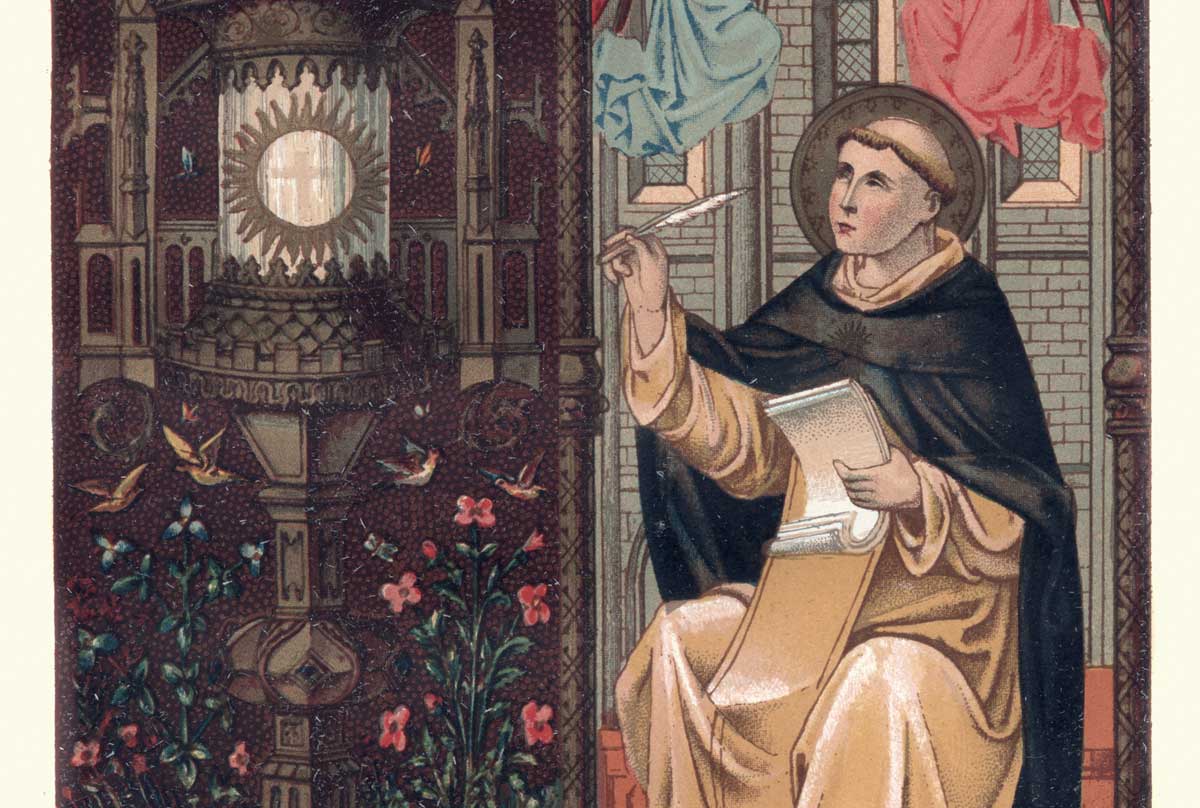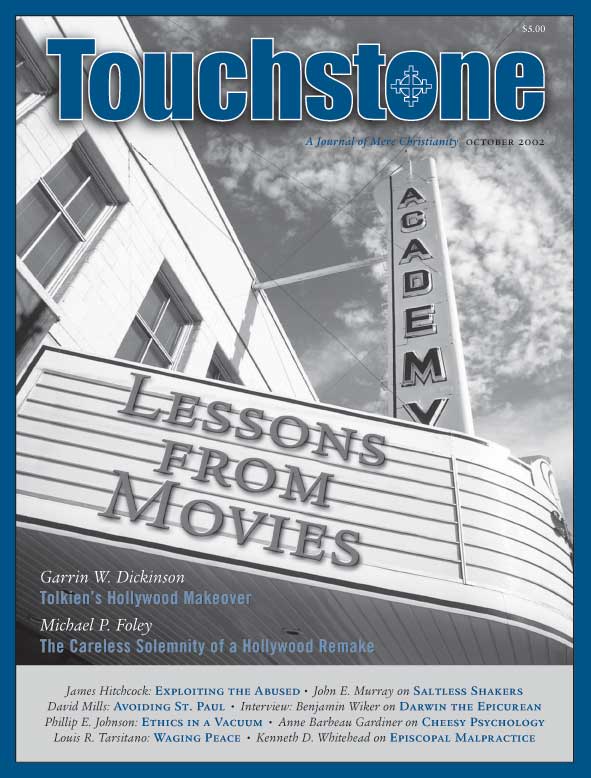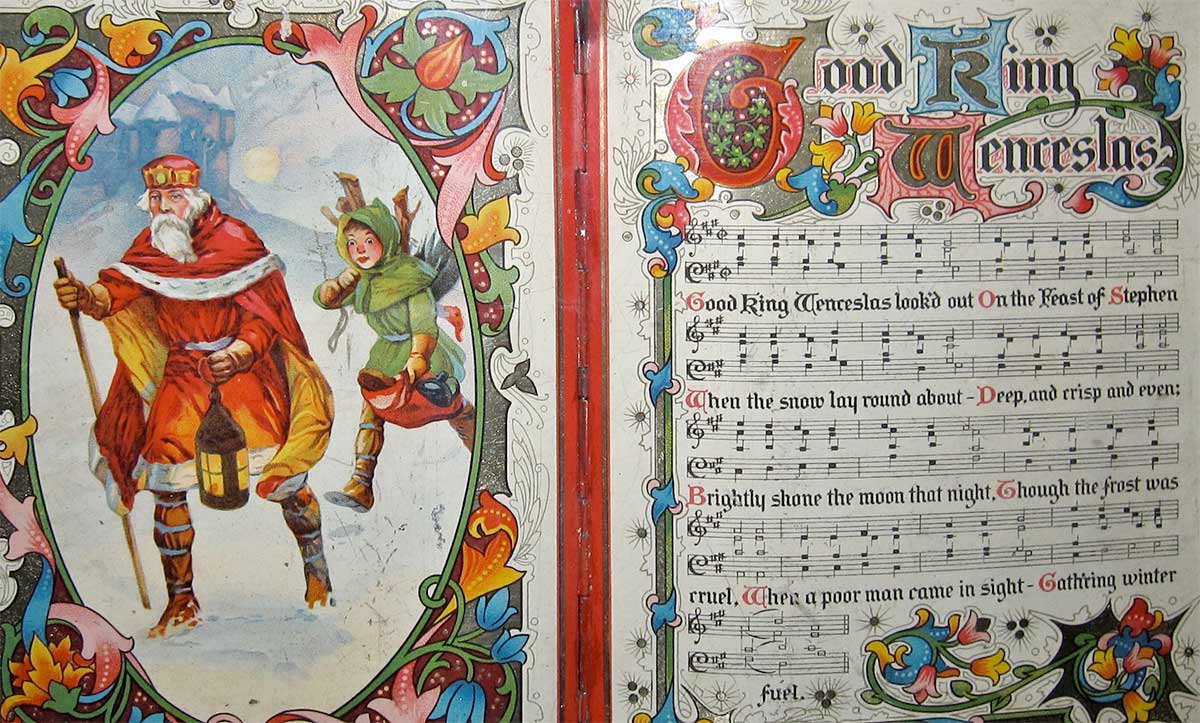Just Visiting Ourselves
Michael P. Foley on the Careless Solemnity of a Hollywood Remake
In general, and often regardless of their quality, cinematic remakes serve as testaments to the differences between two cultures or times. Viewed together, for example, the two productions of Father of the Bride set into sharp relief the different convictions about sex and gender equality that distinguish the 1980s from the 1950s. Remakes have a barometric quality about them, disclosing in their additions or subtractions the underlying assumptions of their creators.
An excellent case in point is a bawdy comedy named Just Visiting (2001). This Hollywood reproduction of the 1993 French blockbuster Les Visiteurs reveals much about the popular American perception of Christianity—and about our culture’s growing solipsism.
The Original
The original Les Visiteurs (which grossed more than any other French comedy in history) is the story of two medieval Franks—a valiant count named Godefroy and his scurrilous serf Jacquouille—who wind up in the year 1992. In one of the first scenes after the credits, Godefroy captures a witch for her practice of the black arts. Unfortunately, the witch is able to take her revenge by drugging him, under the spell of which he kills the father of his betrothed.
Ruined and disgraced, the knight seeks the aid of the family wizard, who concocts a potion to send him back through time to undo the damage. But the aged sorcerer forgets an ingredient, the quails’ eggs, and so both nobleman and churl are inadvertently hurled forward into the future.
What ensues is the kind of mayhem one would expect from such a fish-out-of-water premise. Although the knight is able to find his great-great-great-great-great-granddaughter, he remains lost in a world of automobiles, electric lights, and telephones. The ensuing destruction of modern appliances and misuse of indoor plumbing is the stuff of good, if vulgar, humor. So too are the other characters’ reactions to medieval political incorrectness, as when Godefroy sings of disemboweling an English enemy or when he and his serf—whose eructation, flatulence, and lack of hygiene give the film its ribald texture—dine like philistines.
Count Godefroy is, in short, larger than life. His appetite is enormous, as is his capacity for courtly love. His virtues (such as courage) are genuine, and his chivalry unwavering. And he is unimpressed by modern times. On a couple of occasions the knight sniffs and says that “the air stinketh,” and once, after surveying the concrete world around him, asks with disdain, “Where is nature?”
But what is perhaps most remarkable about this French yarn of foul mouths and belly laughs is the unassuming accuracy with which it portrays the faith of medieval man. In a sense the plot hinges on the Catholic piety of the knight: His capture of the witch is motivated not by any threat to him or his subjects, but by revulsion at her ungodly profession.
When Godefroy and Jacquouille realize that they are in the future, it is the count who leads the peasant in an eloquent recital of the Our Father in Latin as they kneel solemnly in prayer. (Significantly, his descendant’s husband, who is frequently the butt of the joke, balks when he sees this.) And when the count becomes overwhelmed by the sights and sounds of the modern city, he runs into a church, dives for the altar linen, and yells “Sanctuary!”—much to the dismay of the priest offering Mass.
Even the serf, who is hardly zealous in his practice of the Christian virtues (so little so that he has no problem stealing the jewels off a dead man in church and hiding his booty in the sacristy), has faith in the biblical worldview. It is he who vehemently objects to what he thinks is the wizard’s plan to resurrect his master’s would-be father-in-law, on the grounds that only God can do this. And it is he who, when he sees the condition of Godefroy’s chapel in the twentieth century, poignantly bewails its dilapidation.
Michael P. Foley is an associate professor of Patristics in the Great Texts Program at Baylor University and the author of The Politically Incorrect Guide to Christianity (Regnery, 2017).
subscription options
Order
Print/Online Subscription

Get six issues (one year) of Touchstone PLUS full online access including pdf downloads for only $39.95. That's only $3.34 per month!
Order
Online Only
Subscription

Get a one-year full-access subscription to the Touchstone online archives for only $19.95. That's only $1.66 per month!
bulk subscriptions
Order Touchstone subscriptions in bulk and save $10 per sub! Each subscription includes 6 issues of Touchstone plus full online access to touchstonemag.com—including archives, videos, and pdf downloads of recent issues for only $29.95 each! Great for churches or study groups.
Transactions will be processed on a secure server.
more from the online archives

23.6—November/December 2010
Darwin, Design & Thomas Aquinas
The Mythical Conflict Between Thomism & Intelligent Design by Logan Paul Gage

33.1—January/February 2020
Do You Know Your Child’s Doctor?
The Politicization of Pediatrics in America by Alexander F. C. Webster
calling all readers
Please Donate
"There are magazines worth reading but few worth saving . . . Touchstone is just such a magazine."
—Alice von Hildebrand
"Here we do not concede one square millimeter of territory to falsehood, folly, contemporary sentimentality, or fashion. We speak the truth, and let God be our judge. . . . Touchstone is the one committedly Christian conservative journal."
—Anthony Esolen, Touchstone senior editor








